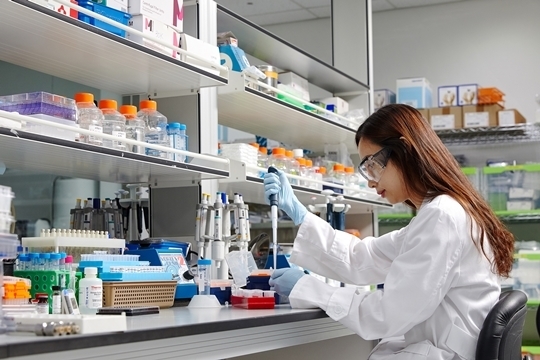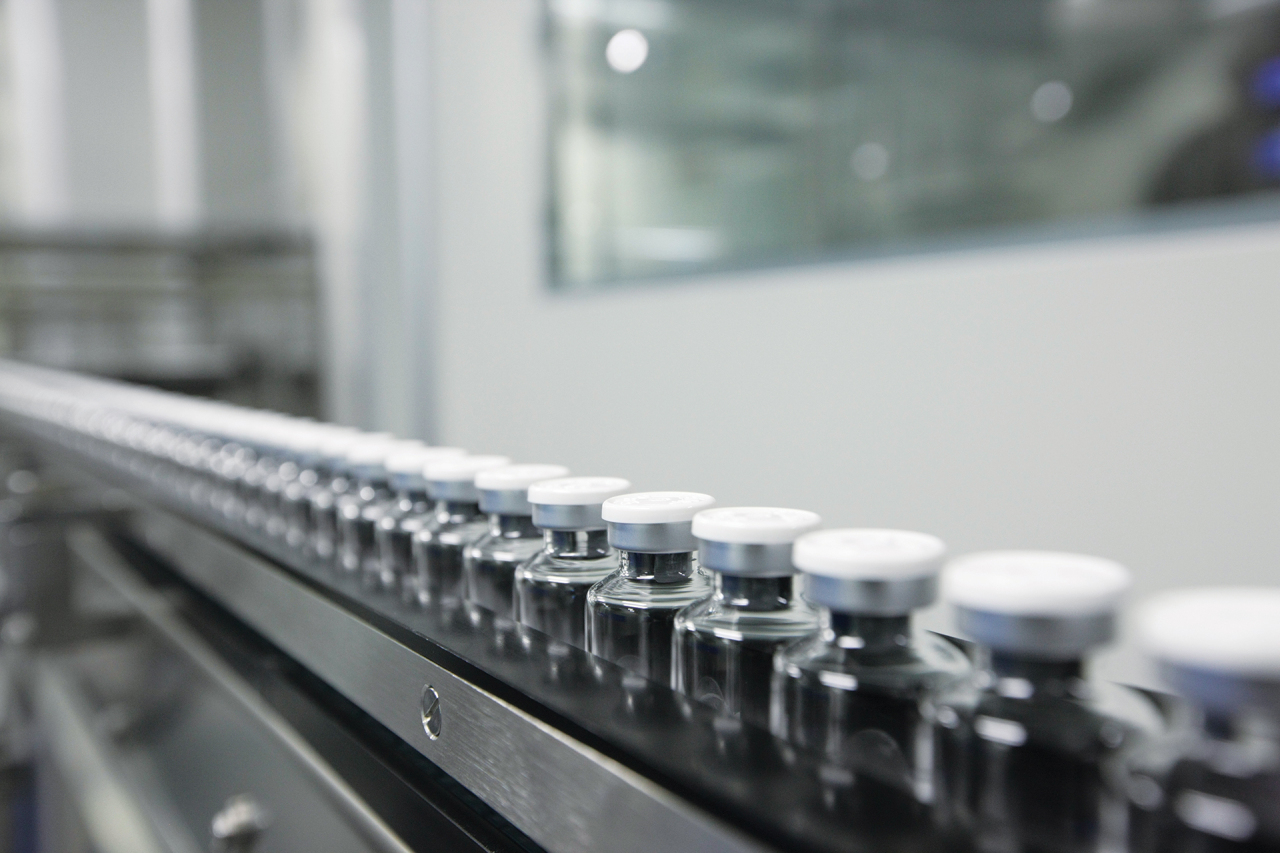[News Focus] Firms look overseas for COVID-19 drug trials
Korean drugmakers seek easier access to candidates, hope to facilitate future exports
By Lim Jeong-yeoPublished : Sept. 15, 2020 - 17:19

Seven South Korean pharmaceutical firms are conducting global clinical trials of their proposed COVID-19 treatments variably in the US, India, Russia, Mexico, the Philippines and South Africa -- with more destinations on the agenda.
The reasons behind choosing to go overseas reflect where the need for COVID-19 treatment is most pressing, the companies told The Korea Herald.
At their clinical trial destinations it is easier to find candidates to test the drugs on, due to the sheer number of cases.
When in clinical trials, experimental drug pipelines are administered to humans to determine if they should be commercially available or not. Phase 1 clinical trials are carried out with healthy people. This is the phase in which the developer company decides which dosages offer the most efficacy and the least toxicity.
Once the drugs prove through clinical phase 1 trials that they hold more potential than peril, they proceed to phase 2 clinical trials, which involve actual afflicted patients.
If the phase 2 clinical trials reinforce the research data, emergency use authorization can be sought for these drugs even before they pass phase 3 clinical trials and go through the necessary paperwork and pricing.
As it is often the case that each nation requires new sets of clinical trials on its soil targeting its own population, preemptively conducting overseas trials may quicken a potential COVID-19 therapy’s global distribution.
Celltrion by far has the greatest breadth of research destinations among Korean firms. The company has vowed to bring its experimental COVID-19 antibody CT-P59 to 12 nations for impending clinical phase 2 trials targeting a total of 500 test participants. It has already submitted phase 2 clinical trial designs to drug authorities in seven countries, and expects to gather a midterm report by year-end, the company said in a press release Friday.
By conducting clinical tests in several countries, Celltrion will be able to see whether CT-P59 works on mutated strains of the SARS CoV-2 virus.
The reasons behind choosing to go overseas reflect where the need for COVID-19 treatment is most pressing, the companies told The Korea Herald.
At their clinical trial destinations it is easier to find candidates to test the drugs on, due to the sheer number of cases.
When in clinical trials, experimental drug pipelines are administered to humans to determine if they should be commercially available or not. Phase 1 clinical trials are carried out with healthy people. This is the phase in which the developer company decides which dosages offer the most efficacy and the least toxicity.
Once the drugs prove through clinical phase 1 trials that they hold more potential than peril, they proceed to phase 2 clinical trials, which involve actual afflicted patients.
If the phase 2 clinical trials reinforce the research data, emergency use authorization can be sought for these drugs even before they pass phase 3 clinical trials and go through the necessary paperwork and pricing.
As it is often the case that each nation requires new sets of clinical trials on its soil targeting its own population, preemptively conducting overseas trials may quicken a potential COVID-19 therapy’s global distribution.
Celltrion by far has the greatest breadth of research destinations among Korean firms. The company has vowed to bring its experimental COVID-19 antibody CT-P59 to 12 nations for impending clinical phase 2 trials targeting a total of 500 test participants. It has already submitted phase 2 clinical trial designs to drug authorities in seven countries, and expects to gather a midterm report by year-end, the company said in a press release Friday.
By conducting clinical tests in several countries, Celltrion will be able to see whether CT-P59 works on mutated strains of the SARS CoV-2 virus.

In another case, Celltrion’s existing, already commercially approved biosimilar drug Remsima (infliximab) is being tested in the UK by Oxford University researchers for its ability to suppress what doctors call a cytokine storm. Cytokine storms are flared-up immune responses that exacerbate lung inflammation in COVID-19 patients. Scientists have identified cytokine storms as one of the leading causes of death in serious cases of COVID-19, and believe that subduing the symptom is effectively a means of treating a coronavirus infection.
In another case of clinical trials going global, Daewoong Pharmaceutical is testing its three COVID-19 treatment candidates in four countries. In its latest press release Monday, the company announced its intention to test its Foistar tablets (camostat) in a clinical phase 2 trial in Mexico. Daewoong is already testing niclosamide in clinical phase 1 trials in India and preparing to do the same in the Philippines. Through its Indonesian arm Daewoong Infion, the company is also testing a stem cell therapy for COVID-19 in Indonesia.
For camostat and niclosamide -- drugs already on the market as remedies for pancreatitis and parasites, respectively -- the goal is repurposing. Repurposing or repositioning a drug is when new indications are added to a drug for which it had previously unknown efficacy. Compared with developing a drug from scratch, repurposing has the advantage of shorter development time as the researchers may jump past steps where they already have the required dataset.
A Daewoong official told The Korea Herald that the company is bringing its clinical tests to countries where it has overseas offices and where the demand for a COVID-19 drug is grave. Daewoong’s global offices are well aware of the local regulatory affairs and are actively leading the clinical research in their respective countries, Daewoong said.
Chong Kun Dang is testing anticoagulant and acute pancreatitis treatment Nafabeltan (nafamostat) in a phase 2 trial in Russia, in another case of drug repositioning.
The company has made it clear that the choice of trial destination was based on the volume of test candidates there. Russia has the fourth-highest number of COVID-19 cases, according to the World Health Organization, with over 1 million confirmed cases as of Monday.
In the US, CrystalGenomics is getting ready to test its investigative anti-inflammation pipeline ivaltinostat both on its own and in combination with camostat in phase 2 clinical trials through Parexel, a contract research organization. Parexel and CrystalGenomics are preparing to apply for a US Food and Drug Administration permit to carry out the trials.
CrystalGenomics said it is staking great hopes on ivaltinostat. Ivaltinostat is the company’s original pipeline. The disclosure that it had partnered with Parexel, among the top three contract research organizations in the US, reflects the company’s determination to carry out the research, a company official told The Korea Herald. Research data from the US holds high scientific credibility and is anticipated to lend more power to ivaltinostat, he said.
Enzychem Lifescience is another Korean firm eyeing COVID-19 pipeline development in the US. Enzychem already has had the FDA’s approval to conduct clinical phase 2 trials of its immune booster EC-18 as a COVID-19 therapy in the US since August. But it was unable to confirm to The Korea Herald whether those trials were being executed according to plan.
Although indirectly involved, GC Pharma is another name associated with clinical trials in the US. A member of the global alliance for blood plasma-derived medicinal products for COVID-19 led by CSL and the Takeda Pharmaceutical Company, GC Pharma supports the alliance’s phase 3 clinical trial in the US through its own blood bank there. Albeit the company recently signed to offload this business unit to Spanish firm Grifols, a GC Pharma official told The Korea Herald that before the transaction is complete GC Pharma is able to channel the blood bank for the alliance.
Shin Poong Pharm is testing its antimalarial drug Pyramax as a COVID-19 treatment in South Africa in a clinical phase 2 trial targeting 250 patients. In accordance with the Medicines for Malaria Venture that it is part of, Shin Poong aims to offer Pyramax as broadly and as affordably as possible, the company said.
By Lim Jeong-yeo (kaylalim@heraldcorp.com)







![[KH Explains] How should Korea adjust its trade defenses against Chinese EVs?](http://res.heraldm.com/phpwas/restmb_idxmake.php?idx=644&simg=/content/image/2024/04/15/20240415050562_0.jpg&u=20240415144419)










![[Today’s K-pop] Stray Kids to return soon: report](http://res.heraldm.com/phpwas/restmb_idxmake.php?idx=642&simg=/content/image/2024/04/16/20240416050713_0.jpg&u=)